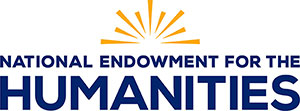University Libraries Secure $150,000 NEH Grant to Develop AI Subject-Tagging Software for Digital Archives

The project, “Subject Spotter: Automation & Subject Tagging Historical Texts,” is part of the libraries’ growing commitment to interdisciplinary digital humanities education and training. Digital humanities assistant professor of practice, Lindsey R. Peterson, Ph.D., will co-direct the project alongside Elizabeth Le Beaud with the Mississippi Digital Library.
Peterson and Le Beaud are partnering with Brumfield Labs, the creators of FromThePage, to develop and test AI-based software designed to increase access to digital archives and libraries.
The Subject Spotter software proposes to use named entity recognition and large language models to automatically create subject tags for historical texts, significantly improving search capabilities and making these resources more discoverable to researchers, educators and the public.
The project will utilize the Civil War and Reconstruction Governors of Mississippi (CWRGM), co-directed by Peterson and Susannah J. Ural, Ph.D., at Mississippi State University, to test the software. CWRGM is an extensive collection of over 20,000 letters sent to the governors of Mississippi during the Civil War and Reconstruction and has already digitized, transcribed and subject tagged over 12,000 letters to date.
“Peterson’s research presents tremendous opportunities for the University of South Dakota to advance the field of digital humanities, as demonstrated by both the Civil War and Reconstruction Governors of Mississippi and Subject Spotter projects,” says Dan Daily, dean of libraries. “Moreover, University of South Dakota students, who are working with Peterson on these projects, gain valuable work experience and make genuine contributions to developing access to the primary sources that help us understand America’s past.”
Elisabeth “Liz” Kluin, a master’s student in the Department of English, will work as a graduate research assistant on the project, providing feedback on the accuracy of the AI-generated subject tags.
Kluin will gain hands-on experience with software development, AI-driven research and digital editing and archiving.
“Working on Subject Spotter will be an incredible opportunity for Liz,” says Peterson. “Humanities research and reasoning skills are critical to the development of AI, and projects like Subject Spotter reflect how important historical reasoning and interdisciplinary training have become for students like Liz.”
“This position offers me a chance to be at the forefront of digital innovation in the humanities, and I am thrilled and honored to continue working with CWRGM,” says Kluin.
Learn more about the NEH grant.




